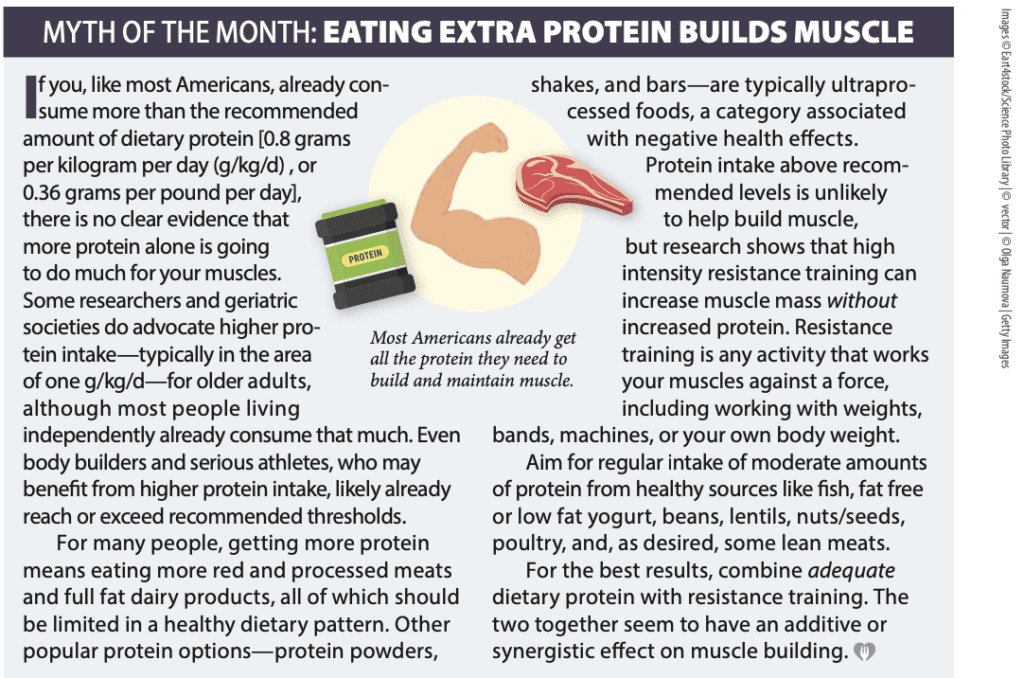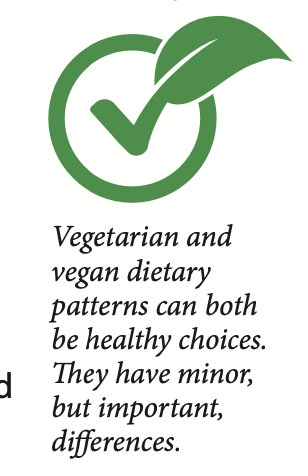Q: What are the differences between vegetarian and vegan dietary patterns?
A: Judith C. Thalheimer, RD, LDN, executive editor of Tufts Health & Nutrition Letter, answers: “Vegetarianism and veganism are both plant-based dietary patterns that exclude animal flesh: red meat (beef, pork, lamb, and venison), poultry, fish, and seafood. The major difference between vegetarian and vegan dietary patterns is the extent to which they exclude animal products.
“Vegetarian dietary patterns exclude animal flesh, but generally allow for other types of animal products. There are different forms of vegetarianism; for example, lacto-vegetarians exclude red meat, poultry, fish, and eggs, but do consume dairy products. Ovo-vegetarians also avoid animal flesh, but they exclude dairy and allow eggs. Ovo-lacto vegetarians consume both eggs and dairy.
“Vegan dietary patterns include only plant foods. They exclude any food that is sourced from the body of an animal. This means that, in addition to red meat, poultry, fish and seafood, eggs, and dairy products, honey and animal-sourced gelatin are also off limits. Avoiding all animal products increases the risk for low intake of certain nutrients, including protein, calcium, and vitamin B12. Aim to include plant-based sources for these nutrients (beans, lentils, and soy provide protein; calcium-set tofu and spinach are sources of calcium, and fortified cereals contain vitamin B12). Ask your healthcare provider about potentially including a dietary supplement for any nutrient shortfalls.
“A vegan or vegetarian diet can be a healthy choice if it is built around whole and minimally processed foods. But eating mainly refined grains, added sugars, and highly processed foods is bad for health, even if they are all plant-based.
“Dietary patterns high in whole and minimally processed plant foods are associated with a reduced risk of heart disease and type 2 diabetes. You don’t need to adhere to a certain prescribed dietary pattern to reap the benefits of eating plant-based foods. If you don’t want to be strictly vegetarian or vegan, eating more whole and minimally processed plant-based foods in place of animal foods (and highly processed foods of all kinds) is a great choice for overall health.”
Tammy Scott, PhD, is a research and clinical neuropsychologist whose research focuses on the impact of nutrition and life-style behaviors on aging and cognition, mood and quality of life. She is a research assistant professor at the Friedman School and an assistant professor at Tufts University School of Medicine/Tufts Medical Center Department of Psychiatry.






















